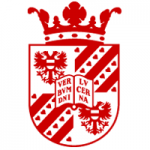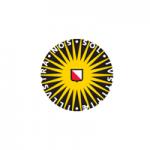项目介绍
Lund University was founded in 1666 and is repeatedly ranked among the world’s top universities. The University has around 47 000 students and more than 8 800 staff based in Lund, Helsingborg and Malmö. We are united in our efforts to understand, explain and improve our world and the human condition.
Lund University welcomes applicants with diverse backgrounds and experiences. We regard gender equality and diversity as a strength and an asset.
Lund University School of Economics and Management is one of eight faculties within Lund University. More than 4 000 students and 450 researchers, teachers and other staff are engaged here in training and research in economic history, business administration, business law, informatics, economics, statistics and research policy.
Lund University School of Economics and Management is accredited by the three largest and most influential accreditation institutes for business schools: EQUIS, AMBA and AACSB. Only just over 100 business schools in the world have achieved this prestigious Triple Crown accreditation.
The Department of Economic History is a research-intensive department that employs about 100 people: researchers, teachers, technical/administrative staff, and Ph.D. candidates. The department has a large PhD programme and co-ordinates three international Master programmes. The Department has a well established reputation for wide-ranging research with an emphasis on long-term processes, and with economic theory and quantitative methods as important methodological tools. Strong research areas at the department include economic growth and structural change, innovation, energy and sustainability, development economics, and economic demography, as well as financial history and education and the labour market. More information is available at the Department’s website: www.lusem.lu.se/organisation/department-economic-history.
Assigned duties
Those appointed to doctoral studentship shall primarily devote themselves to their studies, aimed to result in a doctoral degree. Work carried out during the studentship consists of participation in research projects as well as successful participation in postgraduate (third-cycle) courses. Those appointed to doctoral studentships may also work, to a limited extent, with educational tasks and administration at the Department of Economic history. However, duties of this kind may not comprise of more than 20 per cent of a fulltime post.
The PhD position is linked to the Wallenberg Scholar project ‘Unequal Lives: Socioeconomic Stratification, Life-Course, and Demography from Preindustrial Society to the Welfare State’ (PI: Professor Martin Dribe). The PhD student will work in this project in collaboration with other project members.
Eligibility / Admission requirements
A person meets the general admission requirements for third-cycle courses and study programmes if he or she has:
- Been awarded a second-cycle degree; or
- Satisfied the requirements for courses comprising of at least 240 credits of which at least 60 credits were awarded in the second-cycle; or
- Acquired substantially equivalent knowledge in some other way in Sweden or abroad.
(Higher Education Ordinance, Chapter 7, Section 39)
Specific admission requirements for doctoral studies in each subject are specified in the relevant general syllabus, available at Doctoral studies | Lund University School of Economics and Management (LUSEM)
Other requirements
A proficient level of English is required in both written and oral communication.
Basis of assessment
Admittance of a doctoral student is based on an assessment of the candidate’s ability to benefit from third-cycle studies, see the general syllabus for third-cycle studies, available at Doctoral studies | Lund University School of Economics and Management (LUSEM).
The applicant’s ability to benefit from third-cycle studies and research will primarily be assessed on the basis of academic results from the first and second cycle.
Applicant’s general competence:
- Quality and content of previous written work, such as a Master’s thesis.
- Ability to participate actively in the Department’s research environment.
- Ability to perform independent scientific work.
- Experience and interest in quantitative methods and demography.
- Experience of working with large individual-level databases.
- Proficiency in using statistical packages such as STATA or R.
- Proficiency in written and oral communication.
- Relevant educational background, for example in economic history, history, economics, or demography.
- Other relevant experiences for third-cycle education, such as work experience.
We are interested in applicants with a strong commitment and interest in demographic inequality from a historical perspective, as well as in quantitative methods and working with large micro-level databases.
Project
The aim of the project is to examine the long-term development of demographic inequalities and which forces that have contributed to the unequal lives people are living, not only in economic terms but also in life itself. We will examine different demographic outcomes by socioeconomic status at the individual level from a life-course and long-term perspective. We will analyze demographic change from the 19th century until today using individual life courses. We will accomplish this task employing a newly developed data infrastructure – SwedPop – consisting of a number of historical population databases covering the entire population of Sweden to which official health and population registers from the 1960s onward have been linked (swedpop.se). The research program addresses several pressing societal challenges facing European countries at present. Economic inequality has been rising since the 1980s, and the same is true for inequality in health and mortality. A better understanding of the historical processes that led to these increasing inequalities are therefore of crucial importance.
Terms of employment
Fixed-term employment, maximum four years (fulltime studies).
Only those admitted to third-cycle courses and study programmes at a higher education may be appointed to doctoral student.
For regulations concerning employment of doctoral students etc, see the Higher Education Ordinance, Chapter 5, Sections 1-7.
For regulations concerning admission to third-cycle courses and study programs, see the Higher Education Ordinance, Chapter 5, Sections 34-41.
Application procedure
Please use Lund University job application portal when applying: Work at Lund University | Lund University
The application must be written in English.
The application should contain:
Personal letter in which the applicant gives a short description of him/herself and his/her research interests and its relevance for the project, maximum 3 pages. Curriculum vitae. Grade transcripts. Master thesis or similar degree projects. If appropriate, documented language skills relevant for third-cycle studies. Other documents that the applicant wishes to submit.
The applicant is encouraged to provide the names of a maximum of two teachers or researchers who are willing to provide references and the department can contact, but recommendation letters should not be included in the application.
Lund University welcomes applicants with diverse backgrounds and experiences. We regard gender equality and diversity as a strength and an asset. We kindly decline all sales and marketing contacts.
联系方式
电话: +46 (0)46 222 0000相关项目推荐
KD博士实时收录全球顶尖院校的博士项目,总有一个项目等着你!






